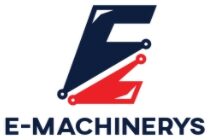To dispense with nickel and cobalt, the extraction of which is now very controversial, IBM has designed a new type of battery, the materials of which come from sea water. According to the first tests, it is more powerful, charges faster and is less flammable and cheaper to produce than its lithium-ion counterparts.
We now know it very well, the production of batteries poses significant environmental and health problems on certain parts of the globe. Certain essential materials for the moment, such as nickel and especially cobalt, available in large quantities in Africa, are sometimes extracted via processes which respect neither the planet, nor those obliged to perform them daily.
On December 18, IBM said it had found a way to change that. In a blog article, the American computer giant claims to have developed a battery from materials derived from seawater. In addition to being more ecological, this battery would, according to the first tests carried out, with a higher energy density, faster to charge and less flammable than conventional lithium-ion equivalents.
Goodbye lithium dendrites
By combining its new cathode with electrolyte, IBM claims to have succeeded in removing the lithium dendrites, highly flammable elements present in conventional batteries, generally at the origin of combustions. A discovery that presents “significant potential for electric vehicle batteries”, especially since the battery recharges to 80% in five minutes.
Due to the absence of cobalt and nickel, the production cost of the battery, which draws its components from seawater (without IBM giving more details for the moment) is lower than its equivalents already on the market. In addition, its density (more than 800 Wh / L) is similar to that of the last lithium-ion sold. All these characteristics make this new battery a serious competitor to everything that is currently being done, believes IBM.
To move from research to development, IBM announces that it has partnered with the R&D division of Mercedes-Benz North America, the electrolyte supplier Central Glass, as well as the battery manufacturer Sidus. Thanks to these partnerships, IBM hopes to soon create “a new ecosystem for the development of new generation batteries” and start mass production.
